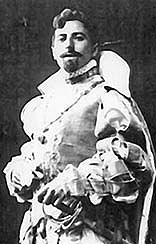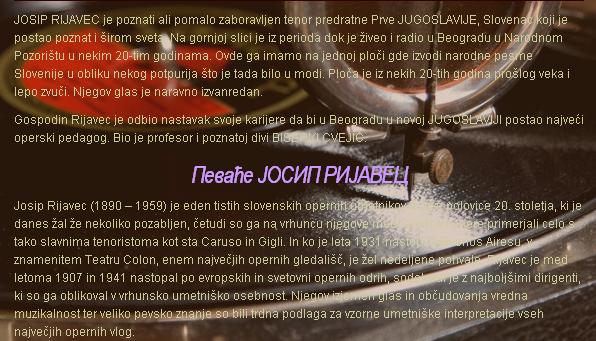Josip Rijavec
or José Riavez or Joseph Rijavek
10 February 1890 Gradisca d'Isonzo – 30 December 1959 Belgrade
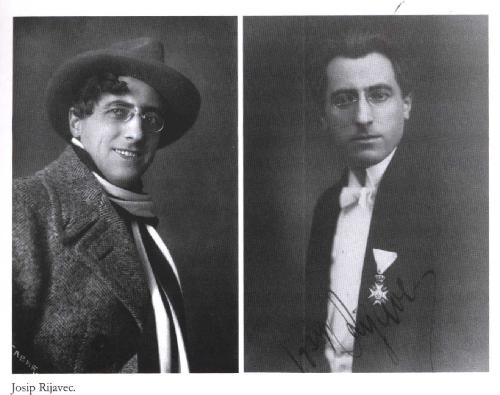 Click to enlarge
Click to enlarge
Josip Rijavec was born in a region that is now part of Italy, but was at the time Austrian-Hungarian and thus part of
Krain (which was the Austrian name for Slovenia). He studied in Gorica and Ljubljana, then in Vienna with Franz Schreker und H. Graedener.
He made his debut in 1916 as Sänger in Rosenkavalier at the Zagreb Opera, where he stayed until 1926.
During that time, he made guest appearances in Belgrade and Ljubljana.
Outside Yugoslavia, he appeared under the stage names José Riavez and Joseph Rijavek. In 1926, he made guest appearances in
Berlin, including the Krolloper, and was a member of the Deutsche Oper Berlin from 1927 to 1929,
where he sang in the following premieres: Cavalleria rusticana as Turiddu, 15 September 1927;
Stravinsky's Solovej (Nightingale) as Fisherman, 16 December 1927; L'amore dei tre re as Avito, 11 May 1928; Madama Butterfly as
Pinkerton, 8 June 1928; Fedora as Loris on 22 January 1930 (already as a guest).
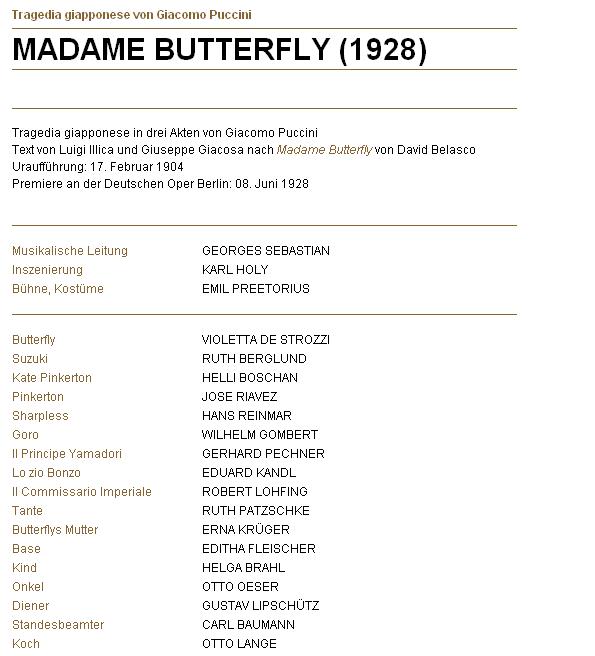
In 1931/32, he made guest appearances in Vienna (Staatsoper, Carmen on 7 January 1932, and Manon on 20 November 1931), and
starting in 1931, he sang regularly at the Teatro Colón in Buenos Aires (Gérald, Stolzing, Narraboth).
1932–37, he was a member of the German Opera in Prague (Il trovatore).
He sang in 1927 in Dresden and in 1929 at the National Theater in Prague.
He gave concerts in Paris (1929), Hamburg (1936, 1937), Copenhagen (1932), and Budapest. He also appeared
in symphonic concerts (Beethoven's 9th Symphony, Verdi's Requiem, Lied von der Erde).
He returned to Yugoslavia and sang for another 10 years in Zagreb, Belgrade and Ljubljana.
He taught singing, starting in 1948 at the conservatory in Belgrade, among his students were: Biserka Cvejić (born
5 November 1928 Krilo-Jesenice), Olivera Miljaković (born 26 April 1934 Belgrade) and Inka Polić (born 28 September
1925 Zagreb).
His son Mario Rijavec (born 1911) was a conductor.
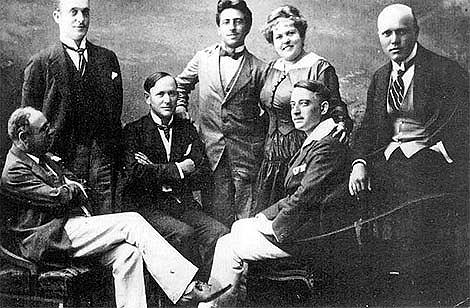 with Ignjat Borštnik, Ivan Levar, Rudolf Bukšek, Irma Polak, Hinko
with Ignjat Borštnik, Ivan Levar, Rudolf Bukšek, Irma Polak, Hinko
Reference 1: Kutsch & Riemens
Reference 2
Reference 3: Detlef Meyer zu Heringdorf: Das Charlottenburger Opernhaus von 1912 bis
1961, Bd. 2, Berlin 1988
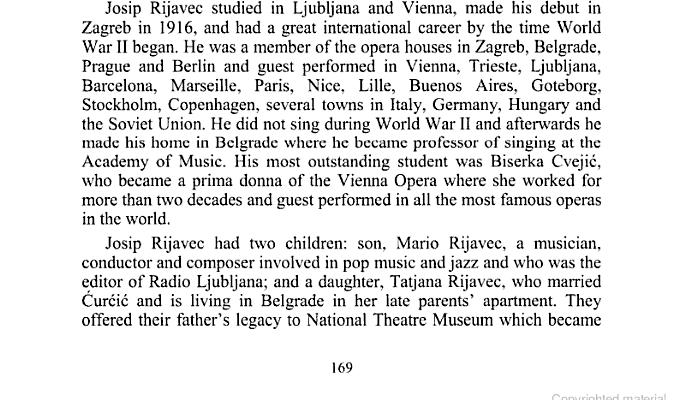
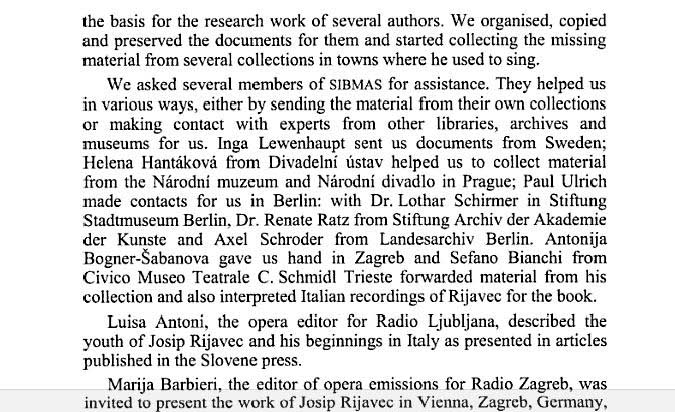
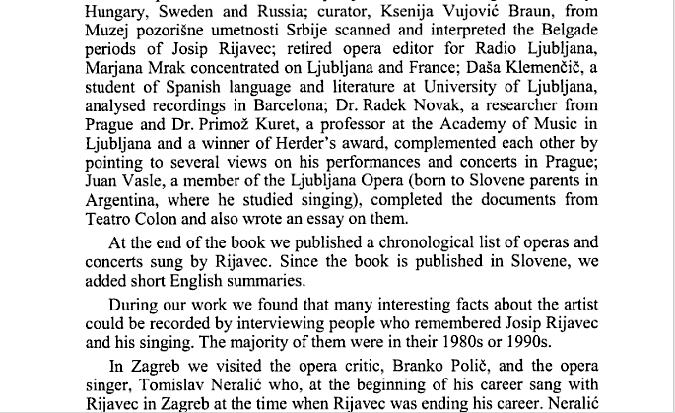
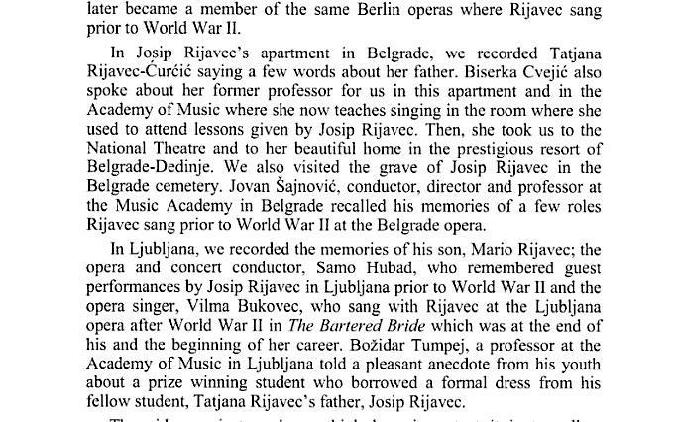
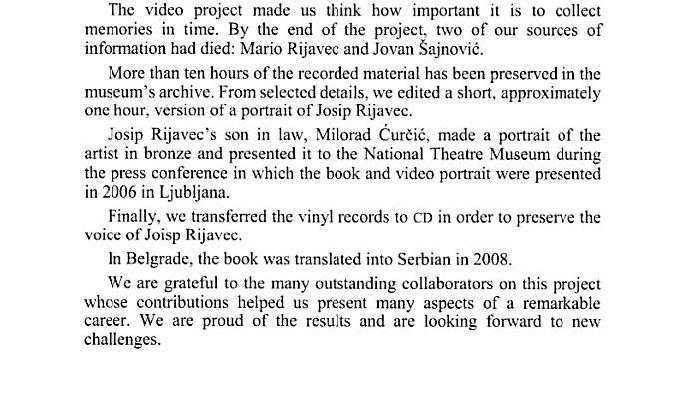
Reference: Laurent Rossion Capter l'essence du spectacle/Capturing the essence of performance.
Un enjeu de taille pour le patrimoine immateriel/The challenges of intangible heritage,
Editors Nicole Leclercq, Laurent Rossion, publisher Peter Lang, 2010
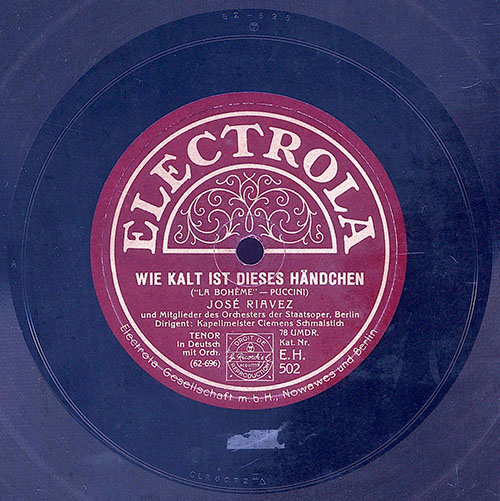
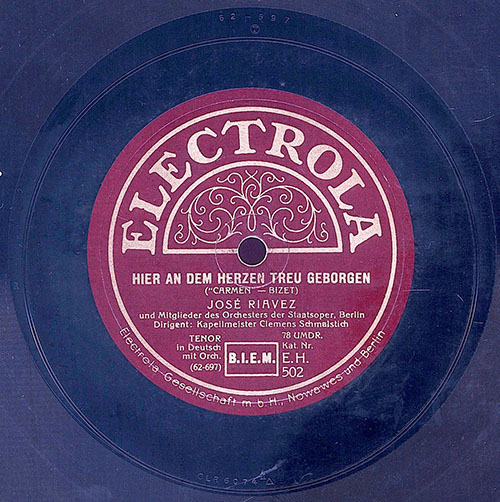
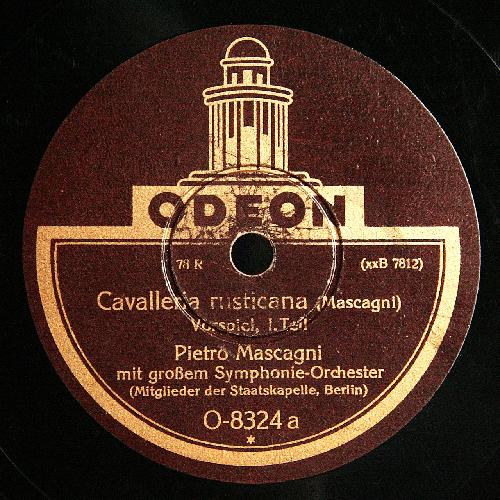
Discography
Parlophon/Odeon, Berlin, 11 October 1927 (conductor Mascagni)
xxB7812 Cavalleria rusticana (Mascagni): O Lola ch'hai di latti 2-20390, P9159, O-8324, O-680
Edison Bell
12053A Bohème (Puccini): Mimì è una civetta Z1081
12054A Rigoletto (Verdi): La donna è mobile Z1081
12055A L'ultima canzone (Tosti) Z1082
12056A Manon Lescaut (Puccini): Donna non vidi mai Z1082
Electrola, Berlin, 16 June 1929
CLR5471 Carmen (Bizet): Final of act 2, pt. 1 unpublished
CLR5472 Carmen (Bizet): Final of act 2, pt. 2 unpublished
(w. Kemp, Knepel, Guszalewicz, M. Abendroth, Henke, Witting)
CLR5474 Carmen (Bizet): Ich bin Escamillo (w. Schorr) unpublished
Electrola, Berlin, February 1930
CLR6072II La bohème (Puccini): Wie kalt ist dieses Händchen EH502
BLR6073II Ballo in maschera (Verdi): O sag, wenn ich fahr' EG1839
CLR6074II Carmen (Bizet): Hier an dem Herzen EH502
BLR6075 Trovatore (Verdi): Dass nur für mich dein Herz erbebt EG1839
Danacord, 1984
Great singers and musicians in Copenhagen 1931-1939 691/96
Excerpts from a live performance of Verdi's Requiem
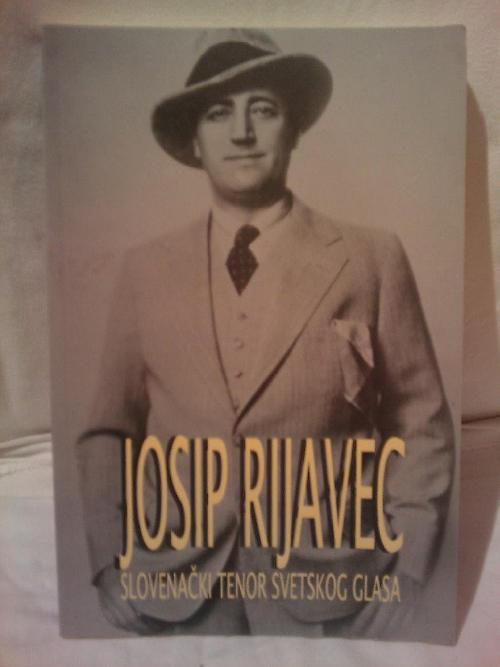
Reference: Josip Rijavec (1890-1959): tenor svetskog glasa [Paperback].
Anton Bieber has provided the Carmen and Bohème recordings plus label scans: thank you very much!
|










